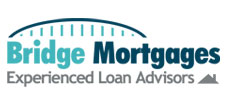| |
Did you know that a 2nd mortgage is another lien on your home that is subordinated to your existing 1st mortgage? People take out 2nd loans, or home equity loans on their property, usually because they need cash. Many borrowers want to get access to more cash, but our reluctant to refinance their existing mortgage, because their interest rate is low. Bridge Mortgages provides updated info on fixed rate equity loans, home equity lines and improvement loans to 95% for good people with a little bad credit. The Department of Housing recently reported that 2nd mortgage defaults had fallen again for the 3rd straight quarter. We anticipate that credit requirements may be eased on credit lines and second mortgage programs.
Taking out a second mortgage uses more equity that you may have earned in your home, so use these valuable loans wisely. Most lenders will not lend you 100% of your property's value, but Bridge Mortgages, will match qualified applicants with 2nd mortgage lenders who go above and beyond their fair market value.
|
You can choose from fixed or variable interest rate loans as well. In most cases, variable rate 2nd mortgages are offered as home equity credit lines.
|
Recently in a radio podcast published by Nationwide, financing legend Charlie Sarconi stated, "second mortgage loans are great for homeowners refinancing adjustable rate credit card debt."
The main two types of second mortgages are home equity loans that have a fixed interest rate and equity credit lines that have adjustable interest. Basically a home equity loan is a closed-end 2nd mortgage, and a line of credit is an open-end loan, that revolves like a credit card.
- Fixed Second Mortgage for People with Poor Credit Scores
- Variable Credit Lines Starting at $5,000
- Low Rate Refinancing
Apply Now for a Low Rate Second Mortgage
There are times when people find themselves unable to pay bills on consumption expenditure or certain outstanding debts like education loans etc. or they want finance for remodeling their home or purchasing a second residential property. It is during this time that they look for alternative sources of credits. Among the numerous alternatives in hand during the time of need, one option that has gained increasing attention is home equity loans. Home equity loan have been gradually accepted as a source of funding because they provide large amount of cash at lower rates of interests and also provide tax advantages. The proportion of homeowners with home equity loans was only 5 percent in 1977 however, with the Tax Reforms Act of 1986 they have increased to 13 percent in 1997(Federal Reserve Bulletin, 1998).
However, these kind of loans have an associated risk i.e. the risk that consumer's home has to be kept as a collateral. Therefore, the consumers are often faced with a very delicate situation. One way to make a very well informed decision while taking up this kind of loans is by assessing and weighing the risks and vulnerabilities associated against the returns. In this short excerpt, we try to help the consumers in making a well-read decision. In brief, we discuss the types of home equity lending available namely, fixed rate second mortgages and home equity credit lines, and try to highlight the relative advantages and risks associated with these modes of credit available in the market that can be used as an alternative for repayment of debts or bills.
The first question that seeks answer is who are eligible for a home equity loan? Home equity loans are available for people who own a home or are aspiring to own a home. Almost all the aspiring families who decide to own a residential property take up a mortgage that is paid off in a decided number of years which is most often in a fifteen or thirty years period. It is only when the buyer or the mortgagor fully repays the mortgage that he is the sole owner of the property. However, during this period of fifteen or thirty years whatever amount the mortgagor pays on the property builds up as the equity in the home. Therefore, in a layman’s term home equity can be defined as the amount of ownership that has been built up by the buyer overtime, by repayment of mortgage and the appreciation of the value of the home. During the time of need the homeowners can use this home equity as spendable funds by converting them into home equity credit. The home equity credits are available to homeowners basically in two forms, namely, traditional home equity loan or second mortgage payment and home equity line of credit.
Continue complete article - 2nd Mortgage vs. Credit Line |
|

